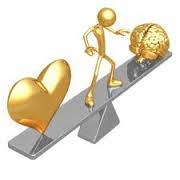Welcome home! Please contact lincoln@icrontic.com if you have any difficulty logging in or using the site. New registrations must be manually approved which may take several days. Can't log in? Try clearing your browser's cookies.
The Complete Picture
 Jeroen
Not all those who wander are lostNetherlands Veteran
Jeroen
Not all those who wander are lostNetherlands Veteran
Dear friends,
How useful is it, according to you, to build up a complete intellectual understanding of the Buddhist path while you walk it? I know some Buddhists who are very involved with learning the sutras, reading copies of the complete translated Pali Canon, reading and understanding commentaries and so on.
I can understand wanting to read say a meditation manual before you go on a retreat, so that you have some idea of what to expect. But I think the whole body of Buddhist teaching is so large that trying to build up a complete picture of the path is an unending task. And yet I know some people who find it essential.
With warm regards,
Kerome
1


Comments
No use.
Intellect not required.
Nyingma is a Tantra that stresses intellectual understanding
Smart arse created the (4th Way beyond Tantra)
https://www.enlightened-spirituality.org/Saraha.html
Another of the Mahasiddhas was known as the Enlightened Moron (Nirgunapa)
Hooray!
Personally I’m inclined to agree with the guy who I read about who said “five sutras is enough”, although I have enjoyed reading some anthologies of sutras such as the one by Edward Conze and the other by Bhikkhu Bodhi. I don’t need encyclopaedic knowledge or all-around understanding.
But I feel a certain sympathy for the people at puredhamma.net who are involved in an effort to make sense of the teachings of the Buddha in a modern way. It’s very much based on understanding and categorising the knowledge that’s in the sutras, might be worth a look for some.
Hi Kerome!
I find it extremely useful for my practice, in fact, for some reason I keep seeing how this is another proof of how Buddhism is probably the ultimate path. It covers the intellectualism and meticulousness you would find inside modern Academia and Scientific centres. It also does not deny science nor Academia. Buddhism will just remind you that Ultimate Reality is Nibbana
However, it can be distracting and one can unfortunately become too keen and concerned with the intellectual learning and, at the end, become a scholar of Buddhism, something that doesn't necessarily mean you are a practicing Buddhist. And this is the main point of this path. It reminds me of what Yuttadhammo Bhikkhu advised me to do when I asked him about how to improve my mindfulness during postmeditation / daily life.
"Practice, practice, practice."
PD: Thanks for the puredhamma.net link!
I find that when I get embroiled in study, it hurts my actual practice. I don’t meditate so much.
I’m a fan of keeping it simple. The 4NT, 8FP and 5 precepts. I don’t need to cloud my mind further than that. Indeed, I’m pretty sure the Buddha would have thought that poring over texts really wasn’t what he intended. Living life skilfully and Meditation come first for me. There’s only so much time.
If people want to explore wider than those, great. But I’m of the view that any answers or Insight come from inside.
I think its important to remember that practice is the most important part and keep focused on that. If study becomes a distraction it can become a detriment to our development.
I find it useful to have the broad philosophical framework in place to work with my mind. Applying antidotes, cultivating deficient qualities.
I suppose it also depends on your aim. For our own practice a limited amount of knowledge is fine. This isn't intended as a slight in any way, I just think the example is good, take Forest Gump, his knowledge was small but he applied what he did know in a very skillful and productive manner. I think if you also want to advise others or actually teach, a wide variety of tools and teachings allows one to adjust better to the individual.
In the end I don't think there is a one size fits all approach here. The Dalai Lama is a great scholar and there are yogis who have maybe received only a few teachings but spend their lives in practice.
I see the intellect as a tool that is useful once one realizes how often it only reflects those states of mentality that support its leadership potential even when other forms of guidance may be presenting more appropriate options.
Of course if you replace that word "intellect" with the "heart", the same is also true.
What would equanimity look like if either the intellect or the heart outstripped the other?
Not useful unless I have a desire to become an academic scholar.... in other words if one does not know how to balance intellectual study and practice...one could become just a talker...talking the talk ...but not walking the walk

bearing in mind that the Devil too can cite scripture for his purpose ( think Dharma teachers who act unskillfully )
My aim ( if it can be called aim) is to become a diligent practitioner and this takes practice...practice which goes beyond words spoken, heard, read or thought...
I see the intellect as just a starting point, serving its purpose as a springboard ...however if one is not careful, one could end up bouncing up and down on the board in a state of confusion...
...or when the time is right one can take a leap of faith (out of the comfort zone of the intellect)
I'm under the impression that after a while, one reaches a point where the mind can become over saturated with Buddhist sutras, becoming waterlogged so to speak, a mind weighed down with thoughts...Saturation points vary from practitioner to practitioner....
I find the complete picture/sutra here..

...I like to keep things basic/simple and travel light....4NTs & 8FP = Sunyata
m m m ... let me thunk.
I luvs my belly ...
Iz the answer belly up?
History, life is such that we do not have the complete picture. There will always be some which is unknown. Bits of history missed..Knowledge unknown...Ideas incomplete...much beyond our horizon.
We can not get the complete picture. But we can gain the knowledge, wisdom and understanding which competes our picture.
Peace to all
I think that’s very true, there is a point where one has had enough of sutras. I find that reading one anthology is enough to take me there. For me absorbing one reasonably complex sutra is enough for a day or a few days even.
As a western practitioner you have that luxury, to say I’d like a sutra today, or to say I feel like digesting the wisdom I already have. It takes a certain kind of passion to accumulate a lot of sutras in the brain, or to learn Pali for it.
The Tibetan Dharma teacher/Lama who used to come to the island to give Dharma talks, would often say at the end of the talk "Don't just go away 'thinking' about what I've said, put it into practice and see for yourself!"
Unfortunately there are those who are good at intellectually absorbing the teachings and can paraphrase the contents of the Dharma talk weeks (even months) later, but they seem to have a hard time putting the actual teachings into practice,...In other words they are becoming scholars (learning only by rote, and not by practical experience...ie, developing experiential understanding/knowledge) ...
Perhaps existing karmic/habitual behaviour patterns are blocking the next level/step....and maybe one day when the conditions are right (fertile soil/mud) the seeds of the Dharma talk will germinate and grow...
No mud...no lotus ..... ~TNH~

...however at times the mind's lotus (through karmic interference=not knowing AKA ignorance ) may continue to wallow in the mud and not rise up through it....force of habit (pattern)
The interesting thing about the 4NTs & 8FP is no matter what the Dharma talks are about, there are always some seeds of the Truths that are flowing through it...(if one is actively looking for them and not just listening )
If one thinks about it, living in Samsara with Dukkha around every corner, there are plenty of opportunities to put into practice what's been taught...one just has to work/prepare the soil.........for experiential understanding/knowledge to develop and grow...Carpe Diem & Ehipassiko......
Well that's the plan
It's an interesting question but I'm not so sure there is a complete intellectual understanding of the dharma that isn't somehow missing the action.
In the Aggi-Vacchagotta Sutta Buddha says taking on any view does not lead to direct knowledge, awakening or cessation. He also says that any description of the Tathagata mIsses the Tathagata because the Tatjagata is beyond these descriptions. Just like the Dona Sutta where he denies being human. Because he does not identify as anything, he says simply that he may be called awakened.
To let go of identifying is to let go of positions and to let go of positions is to let go of views.
Also it comes to mind and it may be a crude analogy but once we have it all wrapped up, we can no longer see it unfolding.
The paths of scholarly study, faith & devotion, service to others or meditation can lead to an awakening from identities dream when not entangled with attachment.
These same paths will just as surely maintain our slumber within identities dream when still entangled with attachment.
The value of one path over another is never as critical a question as whether our journey along it results in a solidification or a dissolving of our attachment to that path.
A journeys value depends not so much on the path but on the pilgrims practice upon it.
@how that is my experience to. Adherence, perseverance, practice. Form not so important ... Why should dedication and absorption be so necessary? Clearly it is ...